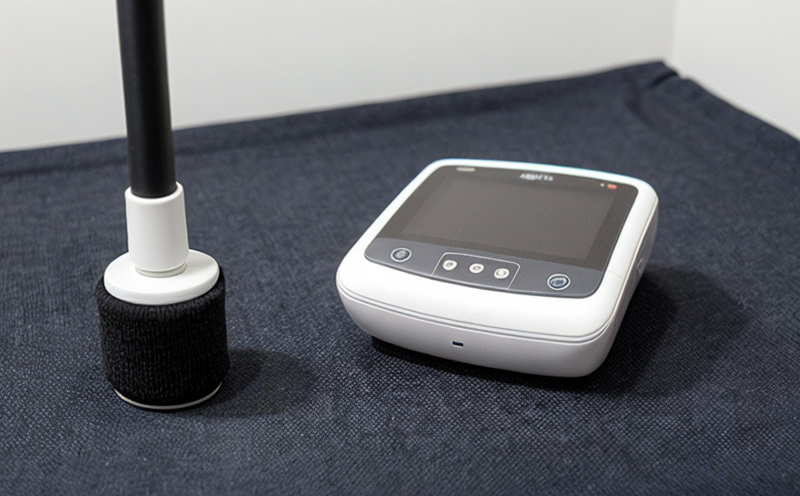JIS L1930 Measurement of conductivity stability after laundering
The JIS L1930 test is a critical procedure in textile manufacturing and quality control aimed at ensuring the durability and reliability of smart and functional textiles. This test evaluates how well the conductivity properties of textiles remain stable even after multiple washings, which is essential for maintaining product performance over its lifecycle.
Conductivity stability is particularly important in applications where electrical or thermal conductivity plays a significant role, such as wearable electronics, medical devices, and smart clothing. The test method measures the resistance change of the textile specimen under standardized washing conditions specified by JIS L1930. This ensures that any degradation in performance can be detected early on.
The testing process involves several steps to ensure accurate results:
- Preparation of the textile specimen according to the standard procedure.
- Determination of initial resistance before washing.
- Subjecting the specimen to a specified number of wash cycles following industry-recommended protocols.
- Measuring the resistance again after the wash cycles are completed.
The JIS L1930 test is not just about measuring conductivity; it also helps in understanding the impact of washing on the overall performance of smart textiles. This information can be crucial for product development, ensuring that new materials and designs meet both functional expectations and durability standards.
Understanding the implications of this testing method requires a look at its broader context within the textile industry:
- The test is part of a larger suite of quality assurance measures used in the production of smart textiles.
- It helps manufacturers comply with international standards and regulations, ensuring product reliability across different markets.
- JIS L1930 contributes to the development of more sustainable textile products by identifying materials that maintain their performance over time without compromising on environmental impact.
Industry Applications
| Industry Sector | Application Area | Description |
|---|---|---|
| Medical Devices | Electrodes and Conductive Fabrics | JIS L1930 ensures that the conductivity of electrodes used in medical devices remains stable after multiple washes, which is crucial for patient safety. |
| Wearable Electronics | Smart Clothing | The test helps manufacturers ensure that smart clothing retains its electrical properties, enabling seamless integration of sensors and other electronic components after washing. |
| Automotive | Electrode Sheets | JIS L1930 ensures the longevity of electrode sheets used in automotive electronics, such as seat heaters or temperature sensors. |
Quality and Reliability Assurance
JIS L1930 plays a pivotal role in ensuring the quality and reliability of smart textiles by providing a standardized method to assess conductivity stability. This is particularly important as consumers increasingly demand durable, high-performance products that can withstand regular use.
- Initial Resistance Measurement: The process begins with determining the initial resistance of the textile specimen before any washing. This baseline measurement provides a reference point for assessing changes post-laundering.
- Laundering Protocol: Specimens are washed under conditions that simulate real-world use, ensuring that the test accurately reflects how the product will perform in everyday situations.
- Post-Wash Measurement: After completing the specified number of wash cycles, the resistance is measured again to determine any changes. A significant increase or decrease can indicate issues with the textile's durability and performance.
International Acceptance and Recognition
The JIS L1930 test enjoys widespread recognition across various countries, particularly in Japan where it originated. However, its significance extends beyond national boundaries due to the growing global demand for quality, reliable smart textiles.
- Japan: The test is a mandatory requirement for textile manufacturers seeking compliance with Japanese standards and regulations.
- Australia: While not mandatory, JIS L1930 is often referenced in quality assurance protocols to ensure product reliability.
- North America: Manufacturers may choose to adopt this test method as part of their own quality control measures.





